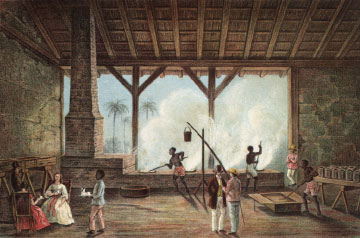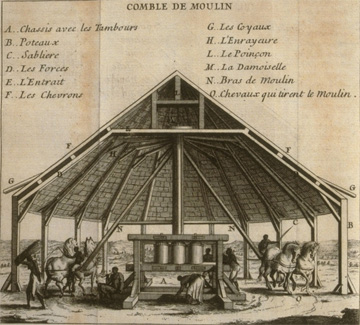The Making of an Atlantic World


Transatlantic slave trading gave birth to an Atlantic world of people, goods, and cultures that circulated, collided, and melded together to lay the foundations for much of our modern world. To tell the stories of European expansion, African migration, and the evolution of the New World without the transatlantic slave trade and the people it involved is to ignore a central thread of world history—a history forged by people and forces of economics, politics, technology, disease, wind, and water.
The history of sugar—or the European sweet tooth—is to some degree the history of the Atlantic world. It is ironic and tragic that the largest forced migration of people in world history resulted from a desire for sweetness in one’s tea, bread, or rum. After early experiments with sugar cultivation in the Mediterranean, bankers and merchants from Genoa and other parts of what is now Italy sought to grow sugar cane elsewhere by establishing networks in Lisbon and Seville. By the early fifteenth century, the Atlantic sea islands of Madeira, the Canary Islands, and later, São Tomé and Principe became models of mercantilism through the export of sugar cultivated by the coerced labor of Africans imported from the mainland.
In fact, São Tomé’s plantation-style sugar industry served as a prototype for sixteenth-century European merchants and investors seeking avenues to wealth in the Americas, first in Brazil and then in the Caribbean. São Tomé also became a slave trading center, in which Central African captives were sold by Portuguese traders to other European slavers, as well as some African merchants for gold.
The rise of the transatlantic slave trade privileged those leaders and merchants with access to the Atlantic coast—in Europe, Africa, and the Americas—and diminished the power and influence of many who were located farther inland, who found themselves at the mercy of middlemen and coastal traders for access to weapons, textiles, and other goods. As a result, the transatlantic slave trade facilitated a major shift in geopolitics that influenced culture, language, law, and other aspects of everyday life for those who found themselves within an increasingly interconnected Atlantic world dependent upon commercial production and racial slavery.
History & Memory
Related Pages:
-
 The Slave Route, Cuba
The Slave Route, Cuba
-
 The Slave Route—Traces of Memory in Guadeloupe
The Slave Route—Traces of Memory in Guadeloupe
-
 Rufino José Maria
Rufino José Maria
-
 West India merchant
West India merchant
-
 Ayuba Suleiman Diallo
Ayuba Suleiman Diallo

